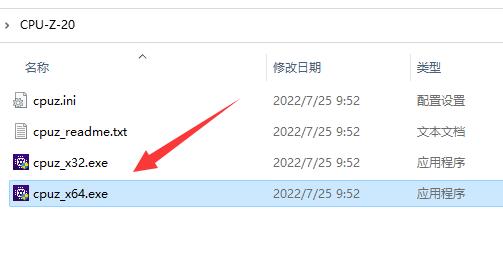The memory module frequency refers to the operating frequency of the memory module, usually expressed in megahertz (MHz). It indicates the speed at which the memory module can transmit data per second. The higher the frequency of the memory stick, it means that more data can be transferred per second, thus improving the performance of the computer.

# Operating system for this tutorial: Windows 10 system, Dell G3 computer.
The memory module frequency refers to the operating frequency of the memory module (such as DDR4), usually expressed in megahertz (MHz). It indicates the speed at which the memory module can transfer data per second. The higher the frequency of the memory stick, it means that more data can be transferred per second, thus improving the performance of the computer.
The frequency of the memory module has a certain impact on the overall performance of the computer. Higher memory frequencies increase data transfer speeds, allowing the computer to read and write data faster, thereby speeding up program execution. Especially when performing tasks such as large amounts of data processing, graphics rendering, and video editing that require frequent reading and writing of memory, high-frequency memory can significantly improve system performance.
It should be noted that memory frequency is not the only factor that affects computer performance. Limitations of other hardware components such as the CPU and motherboard will also have an impact on memory frequency. For example, if the CPU or motherboard only supports lower-frequency memory, even if a high-frequency memory stick is plugged in, it will only work at a lower frequency.
In order to give full play to the performance of the memory stick, it is recommended to choose high-frequency memory that is compatible with the motherboard and CPU in order to obtain better performance while meeting the hardware limitations.
The above is the detailed content of What is the frequency of the memory stick?. For more information, please follow other related articles on the PHP Chinese website!
 内存条坏了电脑能开机吗Feb 20, 2023 pm 02:10 PM
内存条坏了电脑能开机吗Feb 20, 2023 pm 02:10 PM内存条坏了电脑是不能开机的,内存条坏了具体会出现两种情况:1、无法正常开机,这种情况是内存故障中十分常见的一种,基本上都表现为开机时,机箱发出滴滴的警示音,无法进入系统或者显示器不亮;2、频繁出现蓝屏或死机等情况,在开机后出现蓝屏,大部分是内存错误,无法识别等。
 小编来教教大家Cpu-Z怎么看内存条频率?Mar 13, 2024 pm 07:58 PM
小编来教教大家Cpu-Z怎么看内存条频率?Mar 13, 2024 pm 07:58 PM如果想要给电脑更换或者加装内存条,需要先了解电脑的内存条频率,那么我们要怎么看内存条频率呢?可以借助Cpu-Z测试软件,下面就来看看具体的查看教程。 Cpu-Z查看内存条频率: 1、首先根据电脑位数打开cpuz软件。 2、打开后,在spd下就可以查看到我们的内存条频率了。 3、另外,如果我们的内存条是ddr4的,那么这个数字需要乘以2就是我们的内存条频率。 4、如果我们有多根内存条还可以在左上角插槽中选择。 5、此外,还能在内存下看到内存的实时频率。
 支持新一代 CAMM2 内存模组,微星、华擎展出特别款英特尔主板Jun 07, 2024 am 11:23 AM
支持新一代 CAMM2 内存模组,微星、华擎展出特别款英特尔主板Jun 07, 2024 am 11:23 AM本站6月4日消息,综合台媒BenchLife.info报道和X平台用户@wagipon动态,微星、华擎均在2024台北国际电脑展上展出了支持CAMM2内存模组的特别款英特尔主板。其中微星方面带来的是此前预热的Z790PROJECTZEROPLUS(CAMM2)主板,该主板搭载来自金士顿的FURYImpactDDR5CAMM2原型内存模组。▲图源BenchLife.info微星表示DDR5CAMM2内存条可支持至高128GB容量,单模组即实现双通道,可减少兼容性问题(本站注:即使仅有批号不同,传统
 至高 6800CL34,威刚 XPG 推出华硕 TUF GAMING 联名款龙耀 D300G 内存条Jun 20, 2024 pm 08:23 PM
至高 6800CL34,威刚 XPG 推出华硕 TUF GAMING 联名款龙耀 D300G 内存条Jun 20, 2024 pm 08:23 PM本站6月20日消息,威刚旗下电竞硬件品牌XPG近日推出龙耀D300GTUFGAMING联名DDR5U-DIMM内存条,包含黑白两种颜色。该系列联名内存条基于原版龙耀D300G打造,散热马甲上装点有华硕TUFGAMING“电竞特工”主题的文字和图样。根据威刚的说法,龙耀D300GTUFGAMING联名内存条专为FPS游戏爱好者打造,在拥有出色颜值的同时也具有高性能,满足FPS游戏对硬件稳定性的严苛要求。龙耀D300GTUFGAMING联名内存高40mm,可选6000CL30、6400CL32和68
 内存条频率不一样能一起用吗Feb 22, 2024 pm 04:36 PM
内存条频率不一样能一起用吗Feb 22, 2024 pm 04:36 PM内存条频率不一样能一起用吗随着电子产品的普及和发展,内存条作为电脑硬件之一,被广泛使用于个人电脑、笔记本电脑以及服务器等设备中。在购买内存条时,不同型号和频率的内存条会引发一个常见的疑问,那就是内存条频率不一样能一起使用吗?本文将就此问题进行探讨和解答。首先,我们需要了解内存条频率的定义和作用。内存条频率即内存模组工作时钟频率,也称为内存带宽。内存条频率与数
 Thinkbook 15P支持内存扩展吗?Jan 18, 2024 am 09:06 AM
Thinkbook 15P支持内存扩展吗?Jan 18, 2024 am 09:06 AMthinkbook15P笔记本很多用户买了之后发现是单内存,因此担心不够使用,会想要去加一块内存条但不知道可以不可以装,其实没有问题,能够根据需求进行安装的。thinkbook15P可以加内存条吗:答:thinkbook15P可以加内存条。thinkbook15P是16g的内存单条,因此可以加16g或者32g的都没有问题。thinkbook15P性能拓展介绍:1、thinkbook15P的运行速度还是非常快的,反应也不卡顿,可以加持wifii6加持,效果不错。2、使用也不会有什么影响,散热也不错
 不同品牌的内存条可以混用吗Dec 18, 2023 pm 04:39 PM
不同品牌的内存条可以混用吗Dec 18, 2023 pm 04:39 PM不同品牌的内存条在一般情况下是可以混用的。只要它们的频率、容量和接口等参数相同,就可以混用。不同品牌的内存条在生产工艺、质量等方面可能存在差异,混用可能会导致电脑性能不稳定或出现其他问题。因此,在选择内存条时,建议选择同一品牌、同一型号的内存条,以确保电脑的稳定性和性能。
 不同频率的内存条可以混用吗Sep 14, 2023 pm 03:01 PM
不同频率的内存条可以混用吗Sep 14, 2023 pm 03:01 PM不同频率的内存条可以混用,但混用不同频率的内存条属于非标准操作,可能会引发不可预测的问题。如果对计算机性能和稳定性要求较高,内存条的频率是指内存模块的时钟速度,通常以MHz为单位,建议选择相同频率的内存条进行组装,如果必须混用不同频率的内存条,建议事先了解主板和内存条的兼容性,以及进行充分的测试和调整,以确保系统的稳定性和性能。

Hot AI Tools

Undresser.AI Undress
AI-powered app for creating realistic nude photos

AI Clothes Remover
Online AI tool for removing clothes from photos.

Undress AI Tool
Undress images for free

Clothoff.io
AI clothes remover

AI Hentai Generator
Generate AI Hentai for free.

Hot Article

Hot Tools

SublimeText3 Chinese version
Chinese version, very easy to use

WebStorm Mac version
Useful JavaScript development tools

Zend Studio 13.0.1
Powerful PHP integrated development environment

SublimeText3 Linux new version
SublimeText3 Linux latest version

Safe Exam Browser
Safe Exam Browser is a secure browser environment for taking online exams securely. This software turns any computer into a secure workstation. It controls access to any utility and prevents students from using unauthorized resources.






